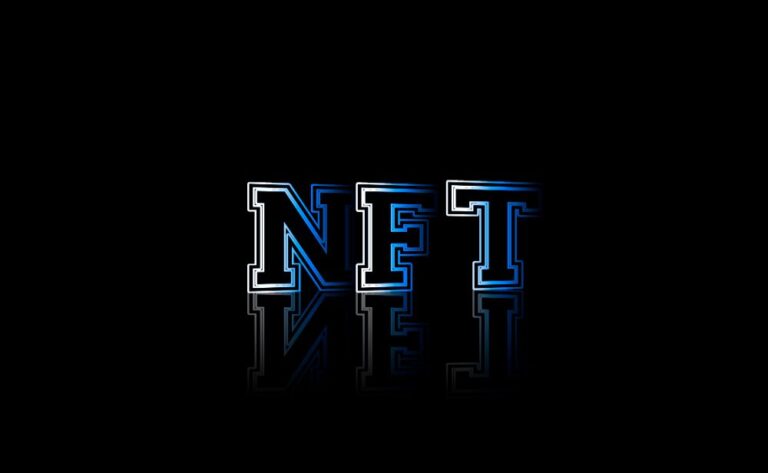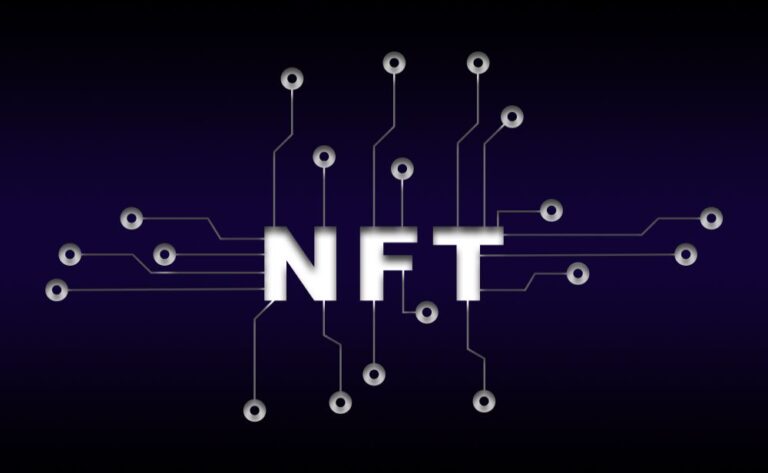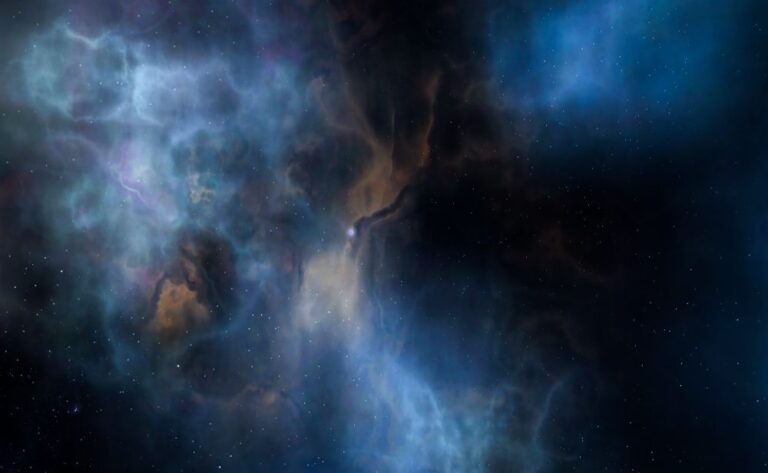
When NFTs were originally introduced, people believed that everything was about art and that they had no real worth. They were mistaken since numerous NFT initiatives have utility today. We will examine the top NFT utility projects and define utility. A project must have some type of utility; otherwise, we would be seeing a digital art gallery. There’s nothing wrong with an art gallery, but blockchain technology has enabled NFTs to evolve into much more.
Top NFT Utility Opinions
Voxies
Voxies is a blockchain-based game featuring 3D figures named voxies. The game is a tactical RPG with a world concept reminiscent of Minecraft Dungeon. There are 10,000 characters with distinct designs, of which two are identical twins. The initial owner of these identical twins was awarded 5 ETH and one in-game character. There are numerous classes, equipment, and features in the game.
Ether cards is a platform for non-fungible tokens that enables users to build unique cards that can provide discounts, event access, unlock certain functionality, link to physical objects, and so on. Only individuals who possess Ether Card NFTs will enjoy VIP access, discounts, and free NFT drops, among other privileges. Each card contains five layers of artwork created by a wide array of artists. They call it the “Accidental Collaboration” since the layers are selected at random and can be from one artist or five.
F1 Delta Time
F1 Delta Time is a blockchain-based game where participants can race Formula 1 vehicles on certified racetracks. Every vehicle in this game is an NFT usable in multiplayer mode. against other competitors. Users can also stake their autos in exchange for REVV tokens. One user purchased the Grand Prix de Monaco event for which he will get 5% of the ticket sales revenue forever, unless he sells his NFT.
yInsure NFT
yInsure NFT contributes something distinctive to the table. This NFT project was developed by yearn.finance, a cryptocurrency firm. It enables users to acquire an NFT that provides insurance for certain DeFi projects. The customer will select one of the available platforms, such as Curve or Balancer, and determine the amount of ETH utilized to cover smart contract risk. Also, he must select the number of days. For instance, you may get insurance for a smart contract on Balancer for 365 days for a cost of 2.5982 ETH and 100 ETH.
The Play Area
The Sandbox is the second largest virtual environment and is comparable to Decentraland. It utilizes the Ethereum blockchain but is powered by the SAND token. The Sandbox has partnered with numerous notable companies and musicians, including The Walking Dead, Atari, Binance, DeadMau5, and Snoop Dogg. You may purchase land, items, clothing, and more. The Sandbox NFTs are available for purchase on OpenSea, Rarible, and their own website. The Sandbox also enables players to stake Sand, which generates a passive income and exclusive in-game products.
Decentraland
Decentraland is a virtual universe that belongs to its users. Almost everything within the game is for sale, including virtual lands, clothing, pets, and flowers. Using API, you may also display your 2D NFTs if they are available on the OpenSea marketplace. The NFT can be placed within a picture frame. Decentraland is one of the most valuable NFT ventures of all time, and all of your in-game assets are NFTs. The MANA token powers the game.
Sorare
Sorare is a unique non-fungible token idea since it integrates the real world with the blockchain. Users can acquire football cards depicting actual players. With these cards, users can construct and manage squads and earn points depending on real-world performance. Then, users can compete against one another and up the ladder. Several celebrities, including Antoine Griezmann and Gerard Pique, have invested in this business.
How do we determine which NFT utility projects are the best?
Due to the limited amount of spaces in our rating table, we had to devise a method for evaluating each project. Our staff has assigned points based on the most significant components of each project.
Our requirements are:
Impact — Does the initiative offer something distinctive and engaging to the end-users? Has it altered how individuals utilize NFTs? It does not matter whether the influence is in the physical or digital world; everything counts.
Use case — What kind of use case does this project have? Is it a single use case, or may several users profit from it? We favor projects that give the most value possible, but we also rank them according to their complexity and usefulness.
Team – Who is responsible for the project? Is it a respected business or unidentified individuals? We favor recognized businesses since they have a greater likelihood of producing a successful job. As you are aware, finance is a crucial factor when discussing utility, and large companies always have more funding. Obviously, this does not imply that financing is the primary determinant of quality, although it certainly helps.
Price – Is this project affordable for the majority of people or is it prohibitively expensive? We favor projects that benefit the entire community, therefore the greater the number of users, the better.
Type – What is the nature of the project? Utility can be as simple as allowing individuals to communicate. It can be as complicated as allowing them to borrow money. The greater the utility’s complexity, the better.
6. Market – Where can you participate in this project? We choose projects that are listed on various platforms and have their own cryptocurrency. Multiple tokens let you to circumvent excessive gas prices, which nobody enjoys.
What exactly are utility NFTs?
Utility non-fungible tokens give additional value to the art, such as special access, the ability to use owned NFTs in-game, passive revenue, and more.
Utility non-fungible tokens are non-fungible tokens that supply users with something other than art. A common argument used by critics of NFT is that there is no practical use case in NFT.
However, this is erroneous as there are numerous initiatives that bring value to their holders. Certainly, there are basic initiatives that provide value, such as “Access to a private Discord server.” However, there are also fairly complicated projects, such as yInsure, which offers insurance for smart contracts.
According to our writings, NFT is a relatively new phenomenon on the Internet. Each day, someone develops a novel concept for a novel application of this technology. Obviously, everything has its limits, and NFT is no exception; however, we have not yet reached this limit.
NFT Utility is available in a variety of formats, which we will discuss later.
Using blockchain games such as Axie Infinity and F1 Delta Time to illustrate the utility of NFTs is the simplest way to do so. F1 Delta Time utilizes NFT in multiple ways.
In F1 Delta Time, the first method players can use their NFTs is to purchase race vehicles. For instance, if you buy a racing car on the OpenSea market, you can utilize it in-game. It allows gamers to race against other players.
You will have both the image and the actual race car in your digital wallet. This is the most fundamental example of NFT usefulness; players acquire the NFT and then utilize it in-game.
Types of NFT application
As we’ve said previously, there are a variety of NFT utility use cases. Now we’ll go over some of the most common ones, so you can truly get what utility implies.
• Games – As indicated earlier with respect to the F1 Delta Time example, games are currently one of the most prevalent applications for NFT. NFTs are mostly used to verify ownership of objects within the game. Each NFT is unique, meaning that you are the only player who can own it.
• Insurance – As demonstrated by the case of yInsure in our ranking, insurance is a difficult but useful NFT utility. You would select the contract on a supported platform that you wish to cover, as well as its duration. You would then be required to pay the insurance premium, and you would be protected for up to X total coins.
• Music – Notable musicians such as 3LAU and Kings of Leon have sold their albums as NFTs. The owners of this NFT additionally possess a vinyl copy of the record. This method of music distribution enables artists to sell directly to their audience. Fans can receive one-of-a-kind, limited items and a certificate of ownership if they wish to resell the NFT.
• Virtual land – Despite the fact that this belongs in the gaming sector, we believe it merits particular consideration. Such games as Decentraland and The Sandbox allow landowners to construct anything they desire. Atari has developed a casino in the Decentraland where real-money wagers can be placed. This also presents an investing opportunity.
There are other other NFT applications available, but you get the idea. As long as the NFT can be “used” for something, it is considered a utility.
How does NFT’s utility function?
If you are curious about how these companies employ NFTs, we will explain. We will avoid using difficult technical phrases so that you can gain a fundamental knowledge.
First, let’s discuss the requirements for owning an NFT. You need a digital wallet that supports it; if you don’t have one, consult our rating of the top NFT wallets.
These corporations have their own wallets in which they store all NFTs. Each NFT has a smart contract that defines how it operates in the background, whether it was created by the marketplace or the user. A smart contract is essentially a computer-generated agreement between two parties.
A buyer does not need to be concerned about a smart contract (unless you want to know exactly how the system works). Conversely, if you are a creator and wish to construct an NFT utility, you must write the contract.
Essentially, a smart contract is pre-programmed to execute actions when certain criteria are met. You can, for instance, program the maximum number of items for a collection, royalties, etc.
The businesses will then integrate smart contracts, the NFT, and their website/game.
Typically, they have a system that confirms ownership of non-fungible tokens (NFTs) through your wallet. As soon as you connect your game to your wallet, all qualifying items from your wallet will appear in your inventory.
Blockchain developers are the programmers who implement such solutions for these businesses. Smart Contracts can be extremely complex, yet their transparency is their greatest asset.
Is each intelligent contract public?
Yes, all smart contracts are made public.
This is both a pro and a con. The good news is that the smart contract is totally transparent, so purchasers are aware of every detail. However, this is also undesirable because any contract problem will be apparent to everyone on the blockchain.
Smart Contracts are permanent; once they have been published, they remain on the blockchain in perpetuity. There are ways to “upgrade” a contract by using a new one, but it is beyond the scope of this article.
In conclusion, smart contracts determine the behavior of NFTs. The majority of useless collections will have their smart contracts established by the marketplace they are selling on, such as OpenSea.
So, if you’re wondering whether a contract can own an NFT, the answer is yes. Yes, NFTs may be incorporated into smart contracts.
For more complex projects, these smart contracts can get rather complex, and you may require the services of a blockchain engineer.
Yes, there are fees associated with the smart contract, if you were wondering. To implement a smart contract, you will be required to pay “gas fees.” These fees vary depending on the blockchain you use.
For instance, Ethereum gas prices for the deployment of a smart contract can go up to $500. In contrast, Polygon’s petrol fees are nearly nil. This is the one-time cost required to post the contract to the blockchain.
Why do individuals invest in NFT utility?
People invest in NFT utilities either to generate profit or to obtain some other benefit. Gamers invest, for instance, because they want to play blockchain games that utilize NFT for in-game stuff.
An example of such a game is F1 Delta Time, in which players can compete against one another. Formula 1 fans will gladly play the game without considering the NFT aspect.
However, there are other players who engage in the activity in order to gain money. In this game, users can wager their racing vehicle to obtain rewards. After the automobile is locked, it cannot be utilized, but you will obtain REVV tokens that can be sold on exchanges for real money.
Blockchain games are not the only NFT utility, but they are now the most popular. The gaming sector has been on the upswing for the past decade, so this is hardly surprising.
Some people invest in Music NFT utilities because they are avid fans of the musician or because they intend to resell the NFT in the future. Since the majority of musicians include physical goods with the NFT, owners can also sell these products.
Ether Cards are an example of a way for an artist to obtain various benefits, such as discounts, access to a location, the ability to activate features, etc. Those who invest in this NFT utility do so for the benefits associated with ownership.
NFT utility can have a solid use case for the owner regardless of the investment motivation. As the NFT industry expands, utilities will inevitably get more sophisticated.
Tips for selling NFT utilities
If you intend to create an NFT utility, or if you already have one, you must understand how to market it. We will share a few selling tips with you. Our research team has been active in the NFT sector since its inception.
• Focus on your advertising – We cannot emphasize this enough. Even if you have the best NFT utility on the market, you will not generate money if your marketing is poor. Almost invariably, inferior products with superior marketing outperform superior products with poor marketing. The same holds true for NFT utility.
• Utilize all social media channels – Which social media should be utilized for advertising? Each of them Equally essential are promotions on Twitter, Instagram, and YouTube. Additionally, there are undiscovered social media channels such as Pinterest. You can experiment and gradually build the community.
• Employ a talented designer – Design is what interests us initially. Functionality should follow form. A fantastic design functions as a free marketing tool. People will view your artwork and then visit your website to learn more.
• Paid promotion is excellent – If you can convince an influencer to promote your project within your budget, do so. However, it is difficult to locate credible influencers in the NFT field. We can assist you in listing your NFT, but more on that later.
• Prioritize utility – There are numerous NFT projects with zero utility. Utilize this to your advantage. Ensure that people are aware that your NFT utility project can assist them with something.
Consider your NFT utility project as if it were a business or a product. Ensure that the marketing is effective, the design is appealing, and the explanation is as straightforward as feasible.
Why should you establish an NFT utility project?
You may question what the benefits are and why you should develop an NFT utility project. First, NFTs are a relative newcomer to the blockchain ecosystem.
You can essentially be among the first to utilize this cutting-edge technologies. NFTs are unquestionably the future, and major corporations like Nike are already exploring methods to implement them.
Nike has also applied for a patent involving NFTs to authenticate their limited edition sneakers. Why shouldn’t you use NFTs for your projects if large corporations can?
If you believe that NFT implementation costs must be expensive, you are mistaken. Today, nearly everyone may afford to produce NFT utility. We will discuss the fees later.
Other than that, you can use NFTs to provide your consumers or fans something unique and exceptional. Take Kings of Leon as an example; their fans received both a limited edition vinyl and a digital asset.
Since Kings of Leon is a globally recognized music group, the price of this NFT and vinyl will likely climb over time. Therefore, you can genuinely consider NFTs as investments.
There are a million different ways to incorporate NFT into your business or project. It makes no difference whether you typically sell primarily physical or digital products. Both artistic communities can benefit.
It is perhaps impractical to cite the example of 3LAU, who sold his album for $11.7 million, but many anonymous users have sold art for hundreds of thousands of dollars.
NFTs, like everything else in the universe, have both advantages and disadvantages. We will discuss both the positives and cons so that you may determine whether or not it is worth the effort.
Pros
First, let’s discuss the benefits. There are numerous advantages to developing your own NFT utility project.
• State-of-the-art technology – You can be among the first to implement NFTs. In most cases, employees that install new technology first receive a bonus. In this instance, the bonus consists of individuals who will follow your project and make purchases from you. It will be considerably more difficult to compete when there are millions of alternative projects available.
• Sell directly to the fans – Whether they are your fans or potential buyers, you may sell straight to them. There are numerous online marketplaces where you may register and begin selling immediately. The majority of the best NFT marketplaces offer a minor commission price of 2.5%, which is far less than what physical agencies often charge.
• Remain anonymous – If your project does not require that you reveal your identity, you can remain anonymous. All you need is a pseudonym and you are good to go. Since the purchase of NFTs occurs through digital wallets, your name will not be visible on the wallet.
• Additional value – As previously indicated, you can offer purchasers and followers something unique and exceptional. The purchaser’s evidence of purchase will be stored on the blockchain forever. Nevertheless, it is not simply the proof of purchase, but also the artwork or whatever your NFT is about.
• Get paid in cryptocurrency — Instantaneous transactions, no more bank delays or exorbitant transaction fees If you are paid in bitcoin, you will receive the funds promptly. You can sell your NFT on a variety of blockchains, thus the cryptocurrency you receive depends on the blockchain you choose.
Cons
Now let’s discuss the disadvantages. As with anything else, there are disadvantages to employing NFT.
Unlike a bank account, you are fully responsible for the security of your digital wallet. This means that if something happens to your funds, such as if you are hacked, nobody will reimburse you. Consequently, blockchain is nearly tough to exploit, whereas your computer is not. Be mindful of the programs you download.
• Transaction fees – Certain blockchains, like as Ethereum, may face elevated gas prices at specific times. Other blockchains, such as Polygon and Tezos, have extremely low transaction fees. Choose blockchains with reduced transaction fees if you’re looking to minimize fees.
• Digital wallet – In order to store your NFT utility collectibles, you need a digital wallet that supports NFTs. Even if you are only a seller, you will need a digital wallet in order to collect payment for your transactions. If you are undecided of which wallet to purchase, take a look at our ranking of the best NFT wallets.
• Convert to fiat – If you wish to obtain fiat currency such as USD, you must convert your cryptocurrency to fiat currency. To accomplish this, you must locate a reputable bitcoin exchange. These exchanges accept deposits of a wide variety of cryptocurrencies and impose trading and withdrawal fees.
• Smart contract fees – If your project is exceedingly complicated, you will need to employ a blockchain expert to create the smart contract. These programmers can charge a substantial sum for their services.
Does the creation of an NFT utility project incur any fees?
If you are wondering how much it will cost to publish your NFT project, let’s examine the fees in detail.
There are two distinct fee types:
• Blockchain fees – Trading, Mining, Smart Contract Deployment
• Market charges – Commission and Listing
Blockchain fees are transaction fees that occur on the blockchain that drives your NFT marketplace. If you choose to sell your NFTs directly on your website, the transaction costs will depend on the blockchain you choose to utilize.
As previously said, if you desire cheaper transaction fees, you should use such blockchains. OpenSea, the largest NFT marketplace, supports Ethereum, Polygon, and Klaytn, for instance.
Due to its lack of scalability, Ethereum has experienced high transaction fees since since the NFT marketplace exploded. Once ETH 2.0 is launched, they may fix the issue. This is a major issue for both buyers and sellers as the majority of the larger NFT marketplaces rely on ETH.
To combat this, certain marketplaces, such as OpenSea, have permitted compatibility for additional blockchains, such as Polygon and Klaynt. Both of these blockchains offer cheap transaction fees, but Polygon has a broader range of applications.
The transaction fee is required for both the trade of non-fungible tokens and the deployment of smart contracts. Smart Contract consumes a little bit more “gas,” so the transaction fee is a little bit more.
The marketplace fee is another form of charge you must account for. On the marketplace, there are two different fees: the listing fee and the commission fee.
On a successful sale of your NFT, commission fees are paid. These fees range between 0% and 15% of the sale price. They are automatically compensated upon the sale of an NFT.
Some NFT marketplaces impose listing fees, albeit not all do.
What is the cost to list an NFT?
Listing fees are dependent on the NFT market you choose to sell on. Typically, these costs are not excessive, but they act as a safeguard against spammers and low-quality projects.
DigitalEyes, for instance, charges a listing fee of 0.01 SOL, which is a ridiculously low amount. However, some marketplaces may demand a greater price in the future; therefore, you should review their FAQ before deciding to advertise your project.
Why are NFT gas prices so expensive?
Gas fees are dependent on the blockchain and the complexity of the transaction; if the transaction is more complicated, the gas fees will be higher. However, the fees largely depend on the blockchain you use.
Choose blockchains with reduced gas prices if you wish to cut gas costs. These blockchains include Polygon, Klaytn, WAX, EOS, and XTZ, among others.
You can compare ETH transaction fees to those of Polygon or any other cryptocurrency, and you will immediately realize that they are even higher than 10:1. Nonetheless, Ethereum is powering many more projects, so this also plays a significant role.
Can NFT be sold for free?
Yes, your NFT can be listed for free on marketplaces like OpenSea. The trick is to use a blockchain other than ETH, such as Polygon.
OpenSea engages in what they call “lazy mining.” Essentially, lazy minting is a technique that enables individuals to post their “NFTs” without incurring gas fees.
The issue is that the items you place on the marketplace are not NFTs until they are sold. When it is purchased, the buyer will pay the minting (gas) fees and it will become a non-fungible token.
If you wish to sell on the OpenSea marketplace, your wallet must be signed. Signing up for a Polygon wallet is free. Combining sluggish minting with polygon results in a free minting.
Still, you must pay the marketplace’s commission costs.
Can you receive royalties from an NFT utility project?
Yes, you can establish royalty rates and earn money eternally from your creations.
Certain marketplaces have predefined royalty charge percentages. This portion is typically between 10 and 15 percent every sale. Essentially, whenever someone sells an NFT you’ve developed, you’ll receive that proportion.
Other markets allow you to customize the proportion. What if you wish to sell non-fungible tokens on your own website as opposed to a marketplace?
The royalty fees can always be specified in the smart contract. Remember the intelligent contract we were discussing? You can put the royalty fees in it to determine what proportion of each sale you will receive.





